Going camping is an activity the whole family can enjoy, but it can also be a lot of work — first, how are you going to fit both a full-size mattress and the dog in the car, and, most important, what are you going to eat? Provisioning, at least, has become a whole lot easier and more fun, thanks to the West Coast’s many creative food-centric businesses that have upgraded both their sustainability practices and the quality of their products to satisfy an audience that expects both fresh, flavorful meals and convenience. Before you hit the road, get a head start on meal planning with some of our must-have camping and road-tripping foodie favorites.
On the Road
No one wants to start a road trip hangry. Sate your (and your family’s) hunger with these satisfying snacks.
Orga Foods Super Crisps
Made with nutritious seeds and chickpea flour and without any added sugars, these crackers from an L.A.-based company are hearty and satisfying (6 grams of fiber and protein) and stand up well to a topper of cheese or veggie spread. Crushed crackers can be repurposed as a topping for salad or yogurt.
Liv Bar
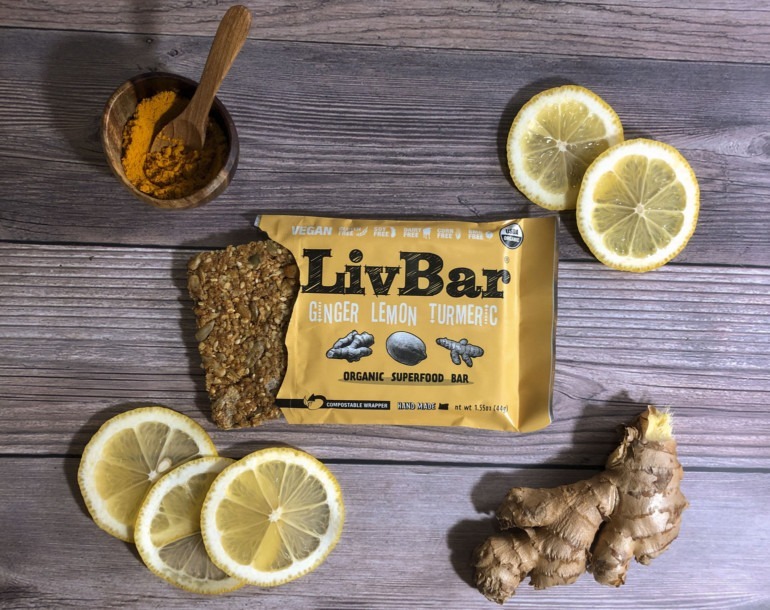
Wrappers made of compostable cellulose are just one part of the sustainability efforts from this Oregon-based company. The all-organic bars are available in a range of zippy and fruity flavors, including vegan ginger lemon turmeric and lemongrass cherry matcha.
Baja Jerky
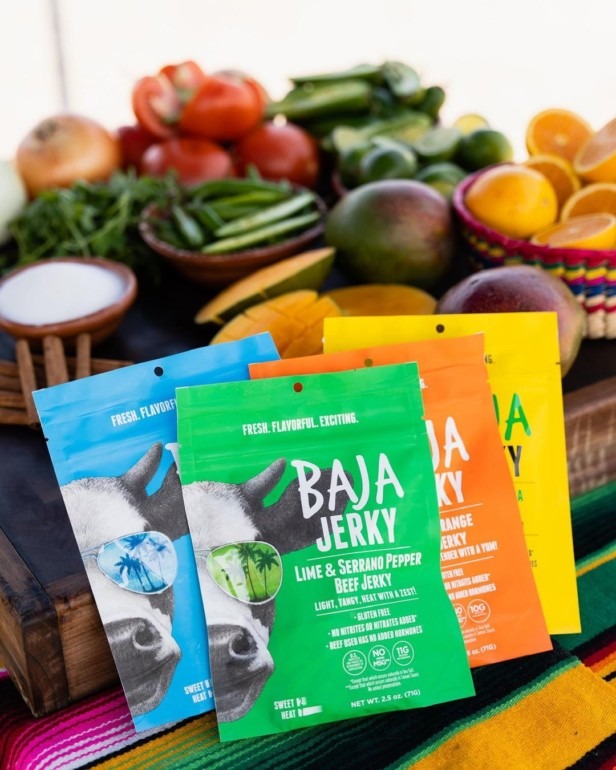
The original road trip staple, jerky has come a long way. Inspired by Baja California, San Diego’s Baja Jerky refreshed the category with flavors like street taco, churro and sweet orange. The beef is certified humane and antibiotic-free, too.
Good Fish
Upcycling salmon into snacks is the driving force behind L.A.’s Good Fish. The 100% sustainably caught wild Alaskan sockeye salmon “chips” are crisped salmon skins. Seasonings turn them into familiar chip flavors like sea salt, spicy barbecue and chili lime. It’s a clean protein snack with no added sugar that reduces the more than 2 billion pounds of fish wasted in Alaskan processing every year.
Patagonia Provisions Apricot + Almond Bar
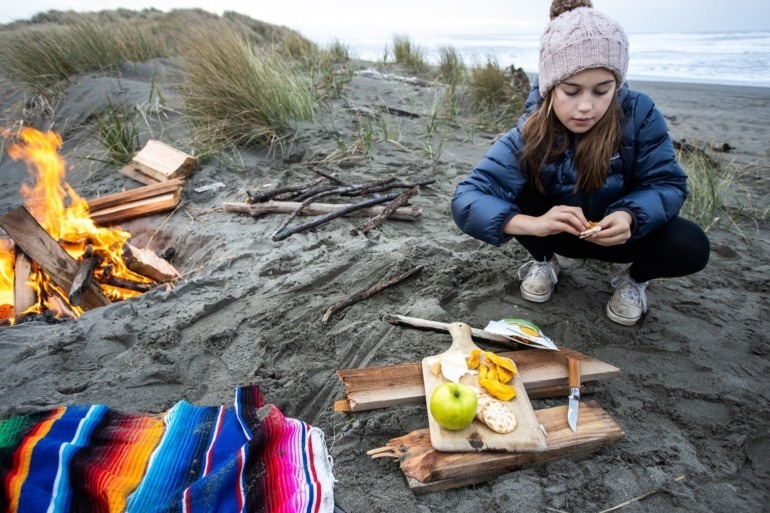
Sweetened only with apple juice and baobab (the fruit of the baobab tree), organic fruit and nut bars from Sausalito’s Patagonia Provisions are naturally tangy and not too sweet. Their petite size is just right to curb hunger pangs between stops.
At Camp
Perk up camp grub with these edible delights. Campfire cooking will never be the same.
Séka Hills Estate Arbequina
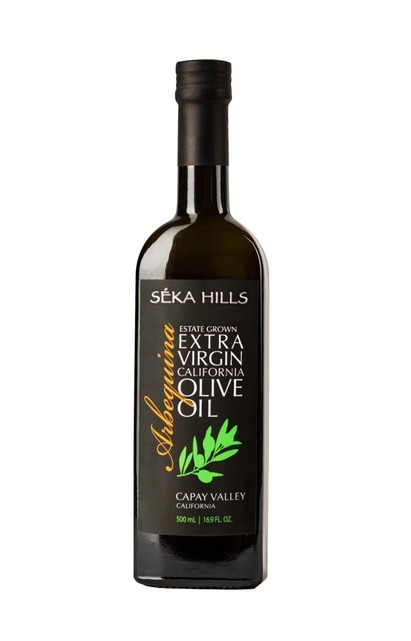
A terrific olive oil adds zesty oomph to salads and makes a fine cooking oil, whether you’re serving dinner in the dining room or at a picnic table. Grown and produced by the Yocha Dehe Wintun Nation, historical inhabitants of the Capay Valley northwest of Sacramento, it’s packaged in dark glass to block sunlight.
One Potato Meal Kits
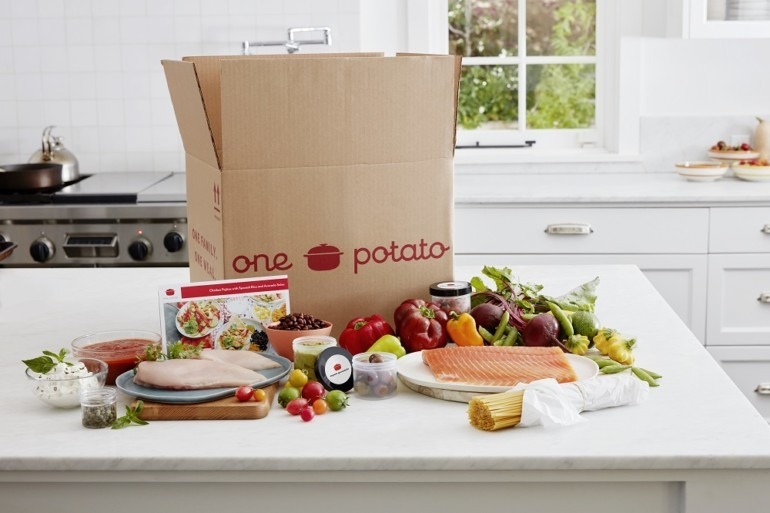
Organic, pre-prepped ingredients from a Los Angeles-based company make cooking fireside with kids a snap. There are vegan and meaty options a-plenty, and the packaging used for shipping is made from recycled content and is all recyclable. Yes, even the foam liner is sustainable.
Rossotti Ranch Grill Master Box
When cooking over a wood fire calls for meat, Marin’s family-owned Rossotti answers. Portion-size cuts of veal, goat steaks and chops are vacuum-sealed; can be ordered frozen or partially thawed; and are packaged in their own cooler bag, which can go straight from the front door to the car in a hot minute. rossottiranch.com
Mr. Espresso Steeped Single-Serve Coffee Bags
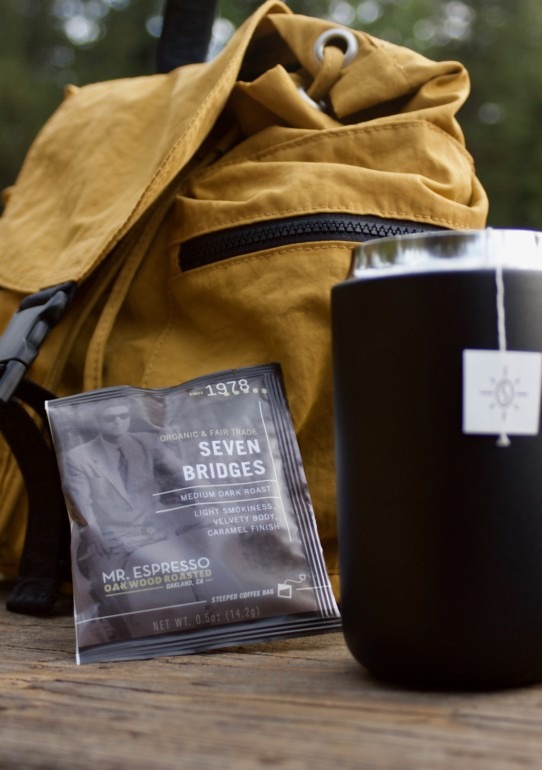
Oakland’s own coffee roaster produces fair trade, organic coffee in portion-sized sachets that are right-sized for your thermal camp coffee mug. Not only does it make a velvety cup of coffee, the sachet and package are compostable.
Flax4Life Granola
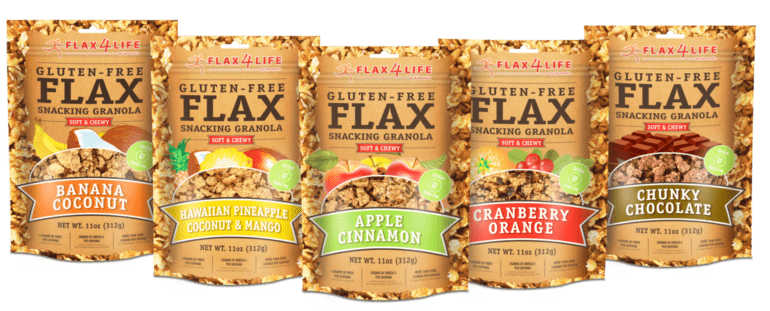
The first three ingredients in the banana coconut granola from this Washington-based company are flaxseeds, oats and honey, providing a robust and balanced 5 grams of protein and 5 grams of fiber to power up your day.
TCHO Drinking Chocolate and Chocolate Bars
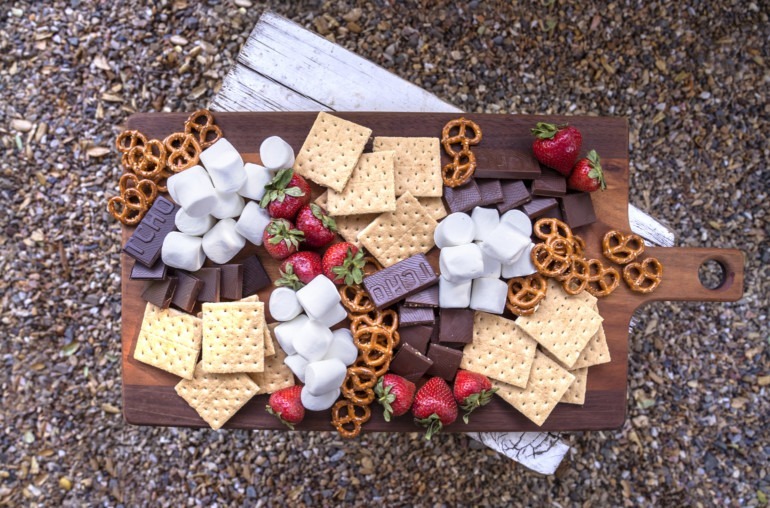
If s’mores and hot cocoa are a part of your fireside plans, look to Berkeley’s TCHO. Their drinking chocolate is nearly fudgy yet not too sweet — a treat for adults and kids alike. And to upgrade s’mores, stay traditional with the classic milk chocolate bar, or go rogue with a milk chocolate toffee sea salt bar.
Camp Provisioning Checklist
Pack a sturdy bin with all of your camp cooking essentials. Here are a few of the most basic items we wouldn’t dare head out without.
- Good knives and a cutting board for portioning everything from bread to onions
- Extra containers to store leftovers
- Aluminum foil, which can be fashioned into cookware and service pieces
- Water — ditch the plastic bottles and look for companies like Boxed Water and Just Water that use renewable paper. Or, buy a pump filter to use camp water.
- Quick breakfast options like oatmeal and hard-boiled eggs
- Hard cheeses, crackers and cut vegetables for pick-me-up snacks when you get back from hiking or canoeing
- Herbal tea for those nights when hot cocoa is just too much
More from Marin:
- Where to Hike in Marin: The Best Trails for Stunning Views
- Surfing Is More Popular Than Ever: And Now, California’s State Sport Is Going to the Olympics
- The Best Local Places to Get Outdoor, Picnic-Friendly Foods
 Christina Mueller is a long-time Bay Area food writer. She hails from the East Coast and has spent way too much time in South America and Europe. She discovered her talent as a wordsmith in college and her love of all things epicurean in grad school. She has written for Condé Nast Contract Publishing, Sunset, and the Marin Independent Journal, among others. She volunteers with California State Parks and at her child’s school, and supports the Marin Audubon Society, PEN America, and Planned Parenthood. When she is not drinking wine by a fire, she is known to spend time with her extended family.s the Assistant Editor at Marin Magazine and a graduate of Elon University where she studied Professional Writing and Fine Art. Born and raised in San Francisco/Marin, she loves traveling just as much as coming home to the Bay Area. She has curated a sophisticated palate for food, travel and culture and uses her travels as an outlet to develop her photography portfolio and hone her writing craft.
Christina Mueller is a long-time Bay Area food writer. She hails from the East Coast and has spent way too much time in South America and Europe. She discovered her talent as a wordsmith in college and her love of all things epicurean in grad school. She has written for Condé Nast Contract Publishing, Sunset, and the Marin Independent Journal, among others. She volunteers with California State Parks and at her child’s school, and supports the Marin Audubon Society, PEN America, and Planned Parenthood. When she is not drinking wine by a fire, she is known to spend time with her extended family.s the Assistant Editor at Marin Magazine and a graduate of Elon University where she studied Professional Writing and Fine Art. Born and raised in San Francisco/Marin, she loves traveling just as much as coming home to the Bay Area. She has curated a sophisticated palate for food, travel and culture and uses her travels as an outlet to develop her photography portfolio and hone her writing craft.

